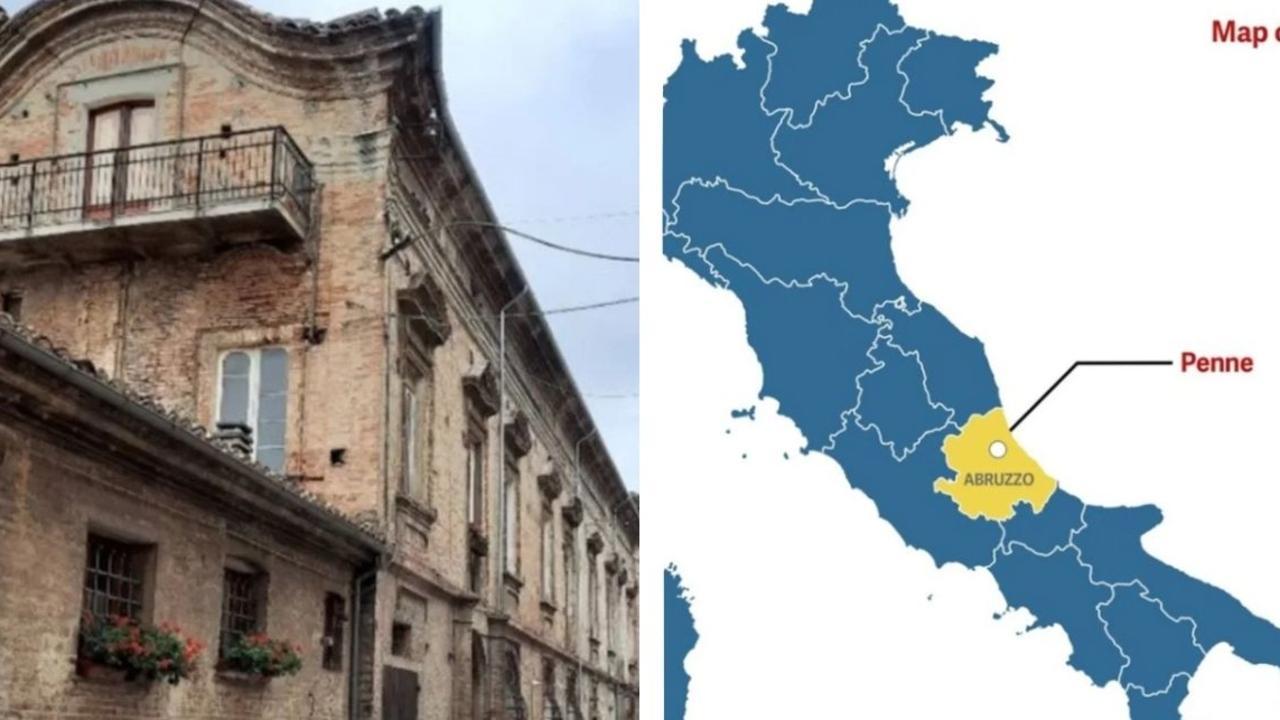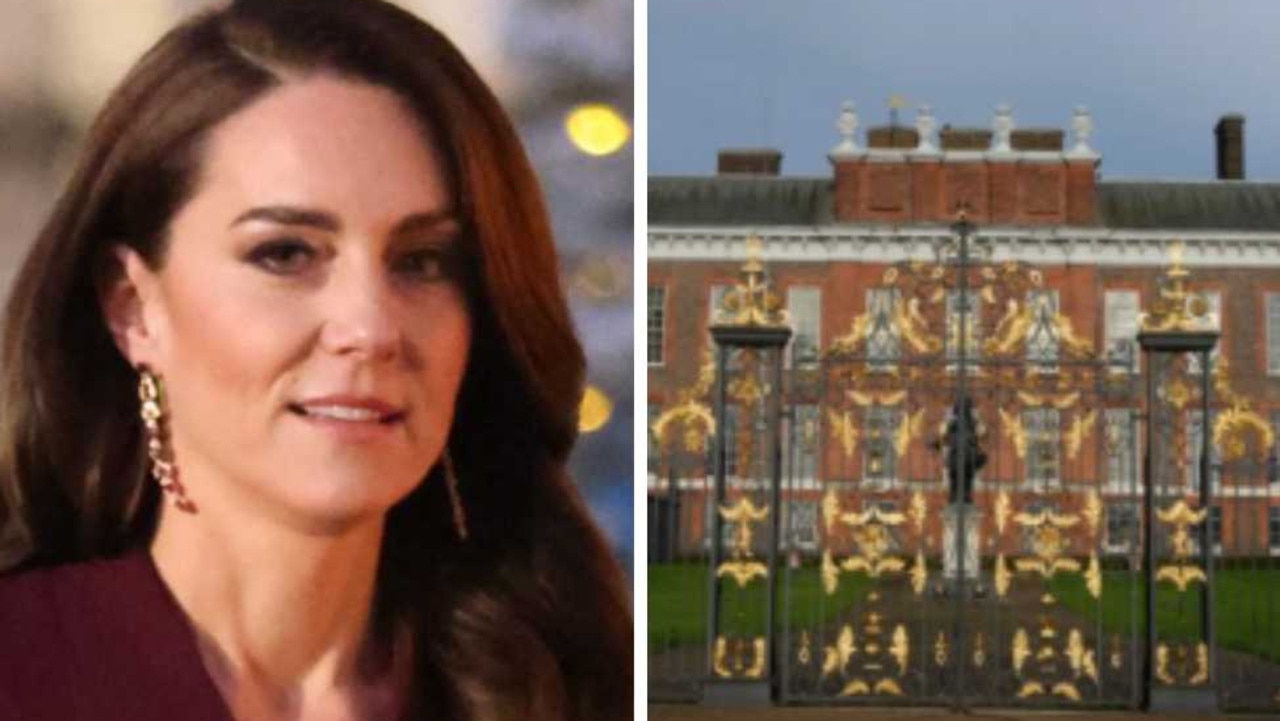Australians snapping up ‘cheap’ houses in Japan to escape housing crunch
Young Aussies are turning their backs on the country in record numbers as they embrace a new trend – but it comes with a dark side.

It’s official: The Aussie dream is dead.
The idea of home ownership was threaded into our national fabric by movies like The Castle, in which a working-class family fight to save their house.
But new numbers expose the reality: For the average Aussie, buying property happens in your dreams alone. Which explains why more and more of us are escaping the housing crunch by moving across the pond.
It hardly comes as a shock that Japan is a buzzing relocation destination. As Australia’s new favourite holiday hotspot, it’s well known we can’t get enough of the place.
That’s not to mention the prices. In contrast to our housing shortages, Japan’s shrinking population has driven a massive number of empty homes across its regions known as ‘akiya’.
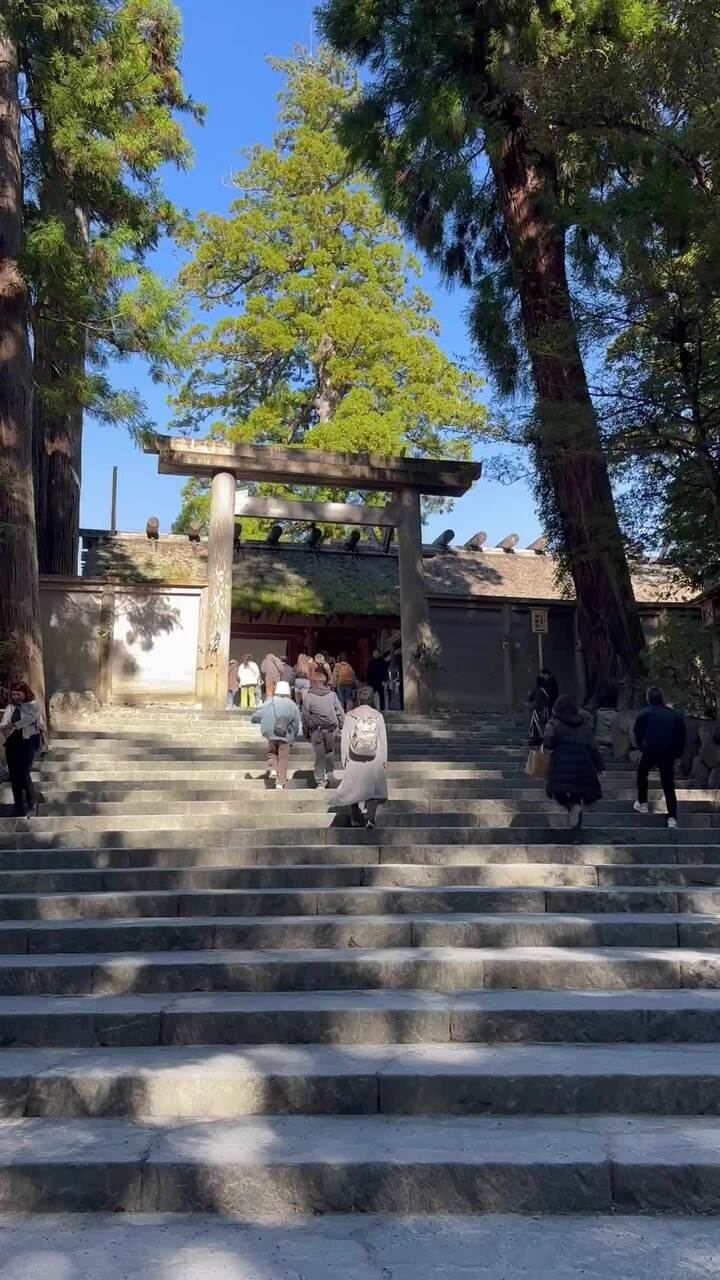
MORE: Home loan trap taking years to escape
Which you can snap up for a fraction of what you’d pay in Australia.
With surrounds that evoke films like Spirited Away, many akiya come with their own cinematic charm. And with no restrictions on foreign buyers, some locals believe the wave of Aussie newcomers are bringing these regions back from the brink.
Sounds too good to be true? That’s because sometimes, it is. These wildly cheap homes can come with a serious catch. But that won’t stop many more Aussies from taking a leap of faith.
We speak to those who snapped up absolute steals in the Land of the Rising Sun, and the real estate agents who opened their doors.
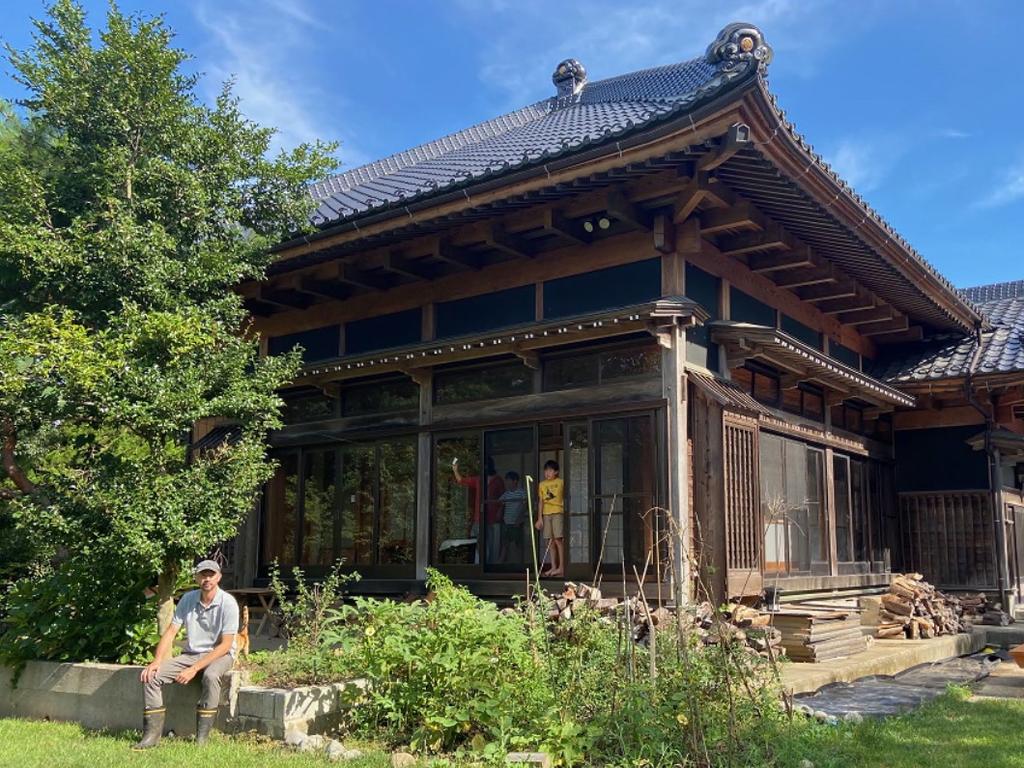
Bang for buck
Australia, or Japan?
That was the question facing Melbourne-born Jaya Thursfield and his Japanese wife Chihiro when the time came to settle their young family.
Living in London at the time, the Thursfields had to make a tough call: in the current climate, Australia no longer added up.
“Looking at the prices in areas we wanted to live in, it was just too expensive,” Mr Thursfield said.
So in 2019, they made the move. Mr Thursfield, 48, and his wife snapped up an akiya farmhouse in Ibaraki prefecture, roughly an hour north of Tokyo.
“We wanted to live near my wife’s mother. While the area feels quite rural and laid-back, it’s got convenient access to Tokyo,” he said.
At $30,000, the purchase was a fraction of Australia’s median house price of $815,000. And spread over a luxe 1800 sqm block of land, it offers a 250 sqm main property with three bedrooms, one bathroom and one guestroom.
The IT contractor said he was seduced by the contrast of the traditional temple-esque slanted roof with the large yard and wraparound porch, not unlike those in Queensland properties. It offers a harmony of Japanese and Australian comfort.
But after laying empty for a long while, it also needed some love.
Since the purchase, the couple have shelled out around $250,000 breathing life into the place. One key difference of the Japanese real estate market is that regardless of renovations, rural properties start depreciating the minute you buy them. It’s a tricky thing to get your head around coming from Australia, where even the most rural real estate appreciates.
MORE: Countries that will pay Aussies $140k to move there
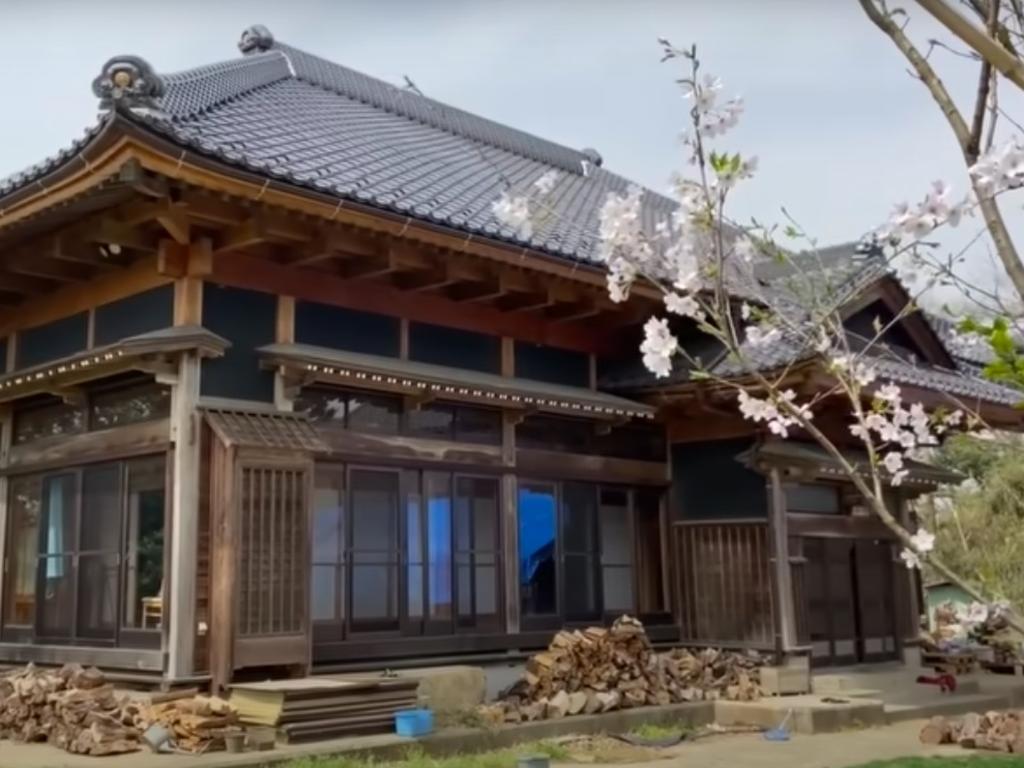
But Mr Thursfield was lucky to recoup some of this investment by documenting this journey on his YouTube channel, Tokyo Llama. With almost 250,000 subscribers, it turned into a big hit.
“This allowed me to scale back on work and focus on the renovation and family life,” he said.
He added that the locals have been welcoming, selling them produce from their farms and lending them vehicles to get around. But he admits the language barrier took time to cross.
“It’s important to speak Japanese to get the most out of life here, as, especially in rural areas like this, there are very few English speakers,” he said.
He also advises other Australians to try before they buy.
“Try living here for a while before making your mind up. I do miss Australia and visit sometimes, though it’s unlikely that we would move back,” he said.
“I do feel sorry for people (in Australia) who have to pay a substantial part of their salary on mortgage or rent.”
Catmosphere
While Tasmania chef Steve Cunningham is also married to a Japanese woman, their move was more business-minded.
“We wanted to open a rural cat cafe,” he said.
After a bank knocked back the loan application in Australia, they decided to look for the next best thing. That’s how they came upon the woodlands of Nagano, north of Tokyo. Here, the climate and landscape felt close to Tasmania.
“It has the perfect weather and a village feel, despite being close to the city. Plus plenty of open space,” Mr Cunningham said.
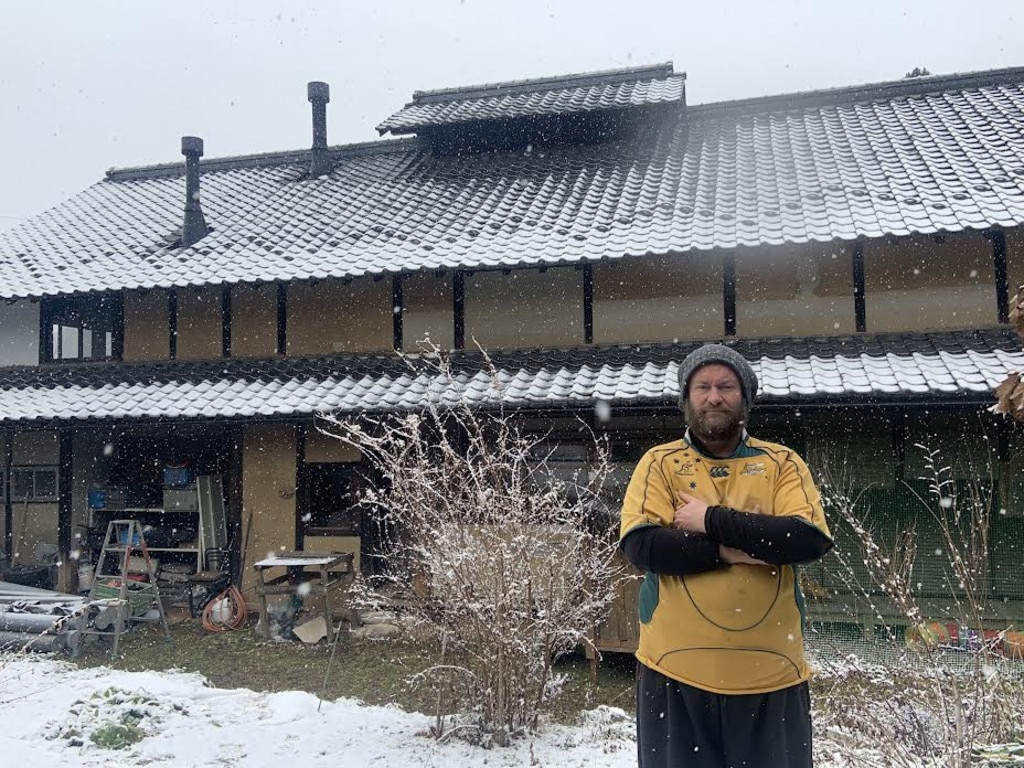
As soon as they set eyes on the property, they knew it was the one. Despite the fact the house had been abandoned for 50 years, it was set over a prime hectare of land they could use to farm produce. The Cunninghams invested $42,000, then another $68,000 on renovations, including a small carpark out front.
Mr Cunningham installed a wood-fired pizza oven by the entrance of the house, which is now also a popular cafe. He works in the kitchen Friday to Sunday, then the farm the rest of the week. This empowers them to live off the land. Like Mr Thursfield, Mr Cunningham also documents his life on his popular YouTube channel, Real Rural Japan.
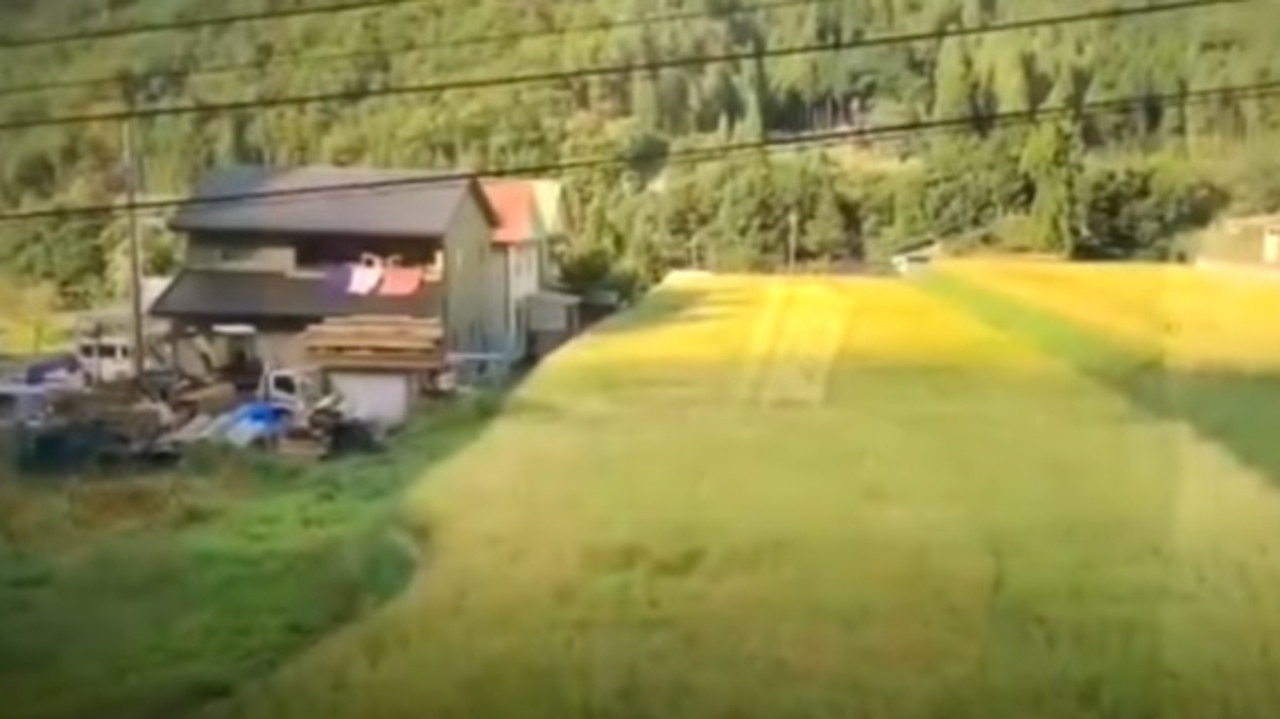
He said he also feels warmly welcomed.
“My neighbours are my best customers,” he said, acknowledging he could never have pulled off this arrangement back home.
“I never had the money or income to consider investing in Australia,” he said.
“I really feel for the hospitality businesses and people on low income.”
He said Japan was his new home, and the best is yet to come – this April, his dream will finally come true.
“We’ve nearly finished our catio expansion. I’ve brought my cats from Australia, and we’re welcoming 13 more neighbourhood strays.”
Winter wonderland
For most Aussies, Japan’s most magnetic pull is far away from Tokyo’s neon glow.
While Australia’s snowfall relies on unpredictable cold fronts, Japan is in point-blank range of Siberia’s blisteringly dry winds.
This means instead of our heavy, wet and minimal snow seasons, Japan transforms into a wonderland of the white stuff. These conditions, along with the dirt cheap flights and cracker exchange rate, explain why Aussies make up 30 per cent of the skiers in some regions – more than the Americans and Chinese combined.
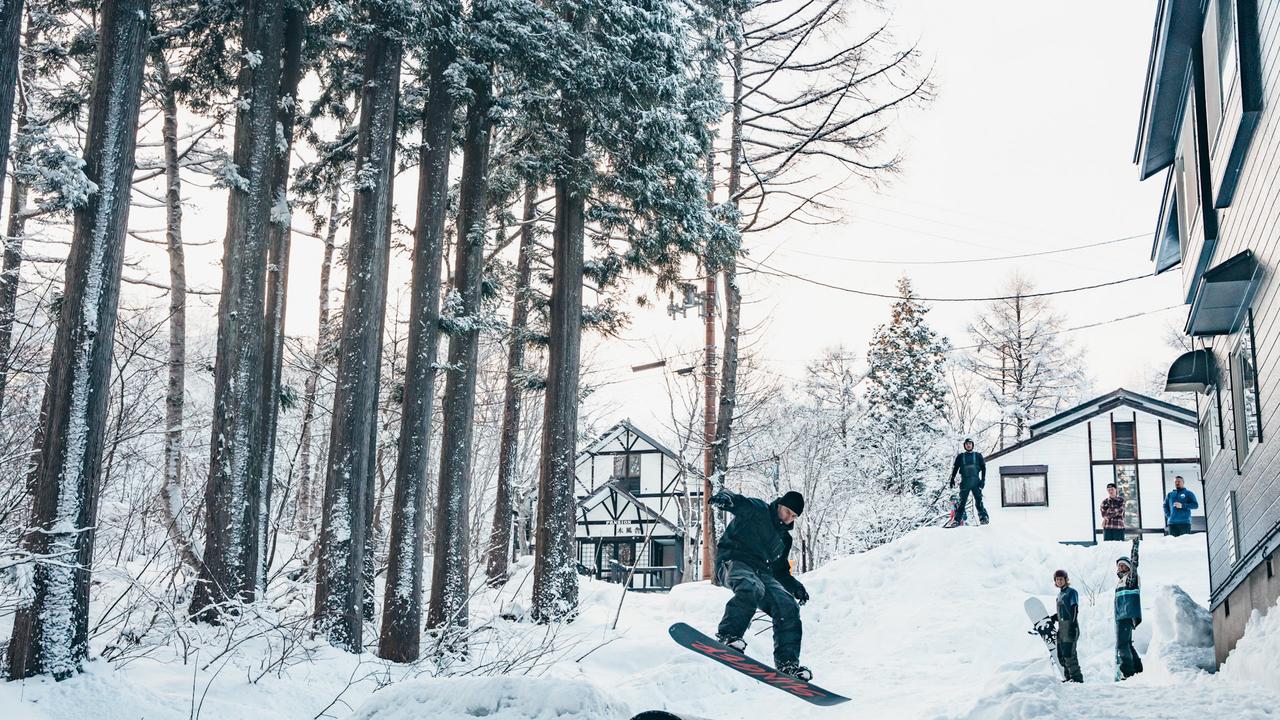
That’s what inspired Tayler Paulsen, 38, and her husband Neil Denize, 39, to set up shop in Myoko Kogen, a valley in the heart of Japan’s snow country. Mr Denize had already worked as a snowboard instructor in Japan, so when friends moved to the area and insisted they check it out, the couple took their word for it. And they haven’t looked back.
“Japan has a way of getting under your skin quickly,” Ms Paulsen said.
“Everything about this place — the year-round outdoor lifestyle, the supportive community and the slower pace of life — has made us so grateful we took the leap.”
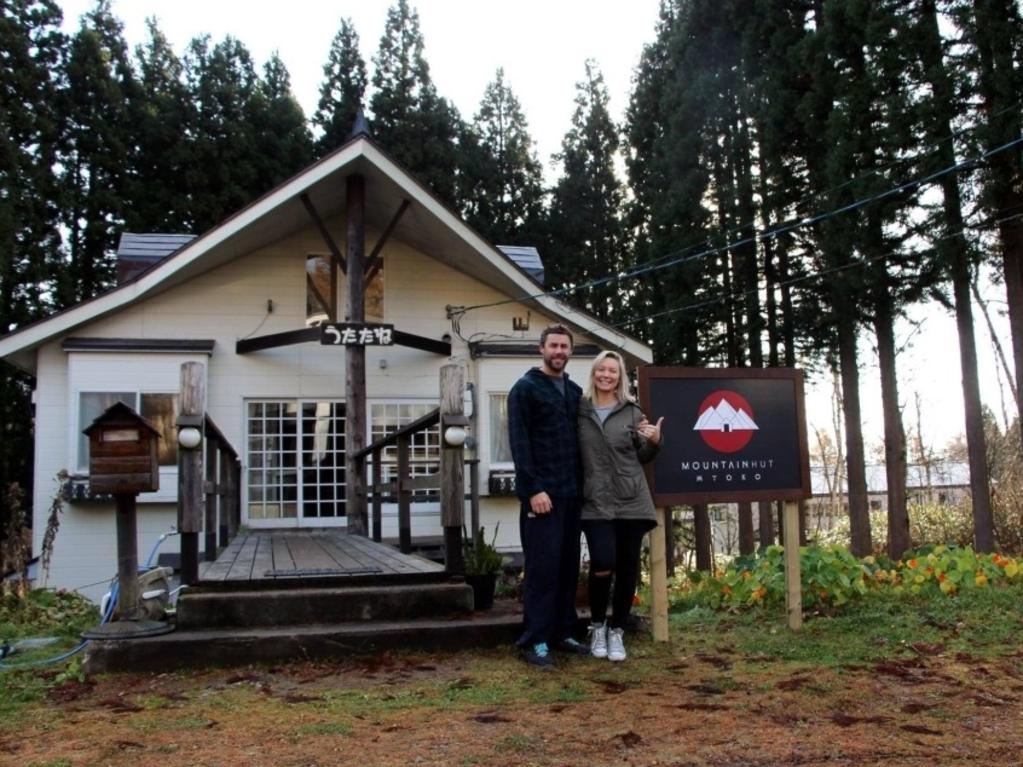
In 2018, they purchased a fully-equipped 12-bedroom lodge for $110,000. That same year, they opened the doors of Mountain Hut.
Since then, the couple has given Mountain Hut a substantial makeover. They’ve also snapped up a nearby cabin named Sugi Chalet, and a beer and pizza restaurant in the village called Two Pines. And there are plans for more growth.
It’s safe to say business is booming in Myoko. Though TMs Paulsen admits she had the advantage of investing in Australia when prices were more forgiving.
“Before starting our journey in Japan, we had already invested in properties in Tasmania and New Zealand,” she said.
“Even with these investments, trying to stay in that market was becoming unsustainable. Grinding it out just to keep up wasn’t what we wanted for our future.”
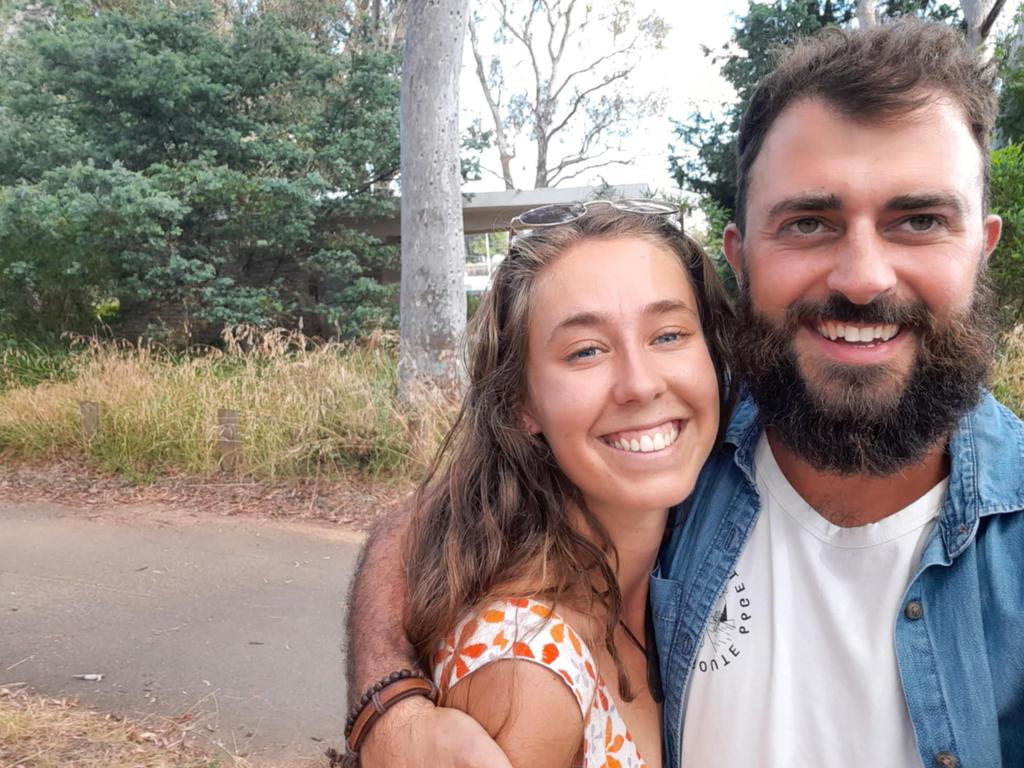
Aussies Kate Paliaga, 26, and James Fabre, 34, also call Myoko home. They bagged their dream home for $80,000 in 2022. Then, in 2024, they secured another $85,000 property just a 10-minute drive away.
“We loved that the area was quiet yet close to ski resorts,” Ms Paliaga said.
Myoko’s serenity inspired them to start their skincare label Myokyo Embodied, blending Japanese philosophy with Australian ingredients.
But their life in Japan wasn’t without setbacks. For the couple, one of the bigger hurdles was their visas.
While there are no visa or residency requirements for foreigners to buy properties in Japan, owning a house doesn’t provide automatic visas or citizenship.
“It’s also difficult to open bank accounts or purchase cars, even though you can buy a house,” she said.
“So unless you have a residency for other reasons, it can be challenging to navigate.”
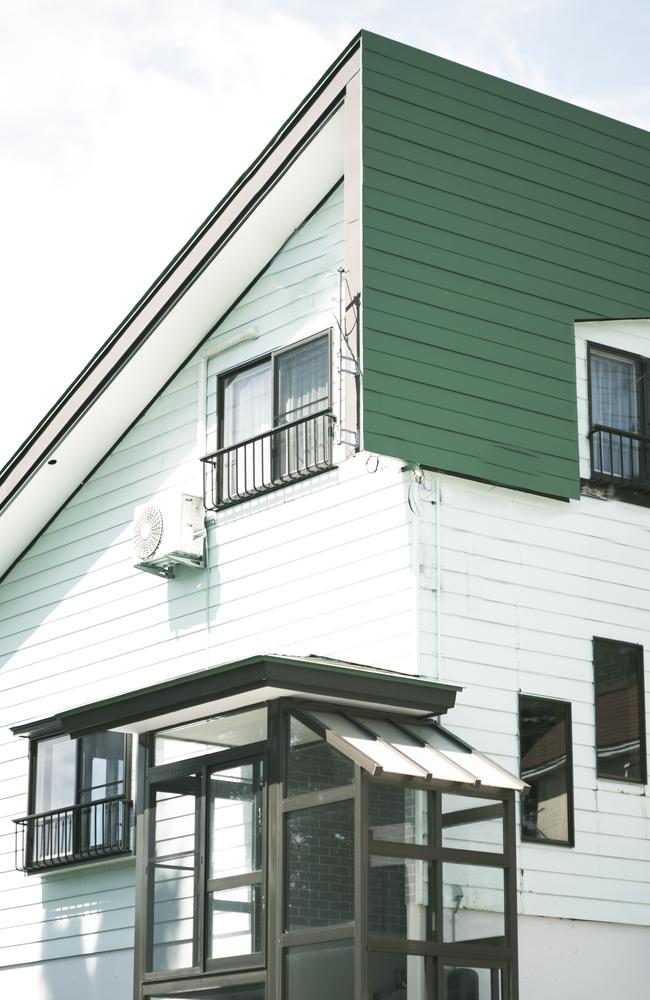
Busting myths
Designer and travel blogger Lia, who asked to keep her surname withheld, moved to Japan after graduating from university in Melbourne.
While working on her sustainable fashion label tokyokaleidoscope and travel blog Ryokan Wanderings, Lia and her husband secured a foot in the door of Tokyo’s relatively less accessible property market.
In 2023, the couple bought another property in the Japanese Alps for about $50,000.
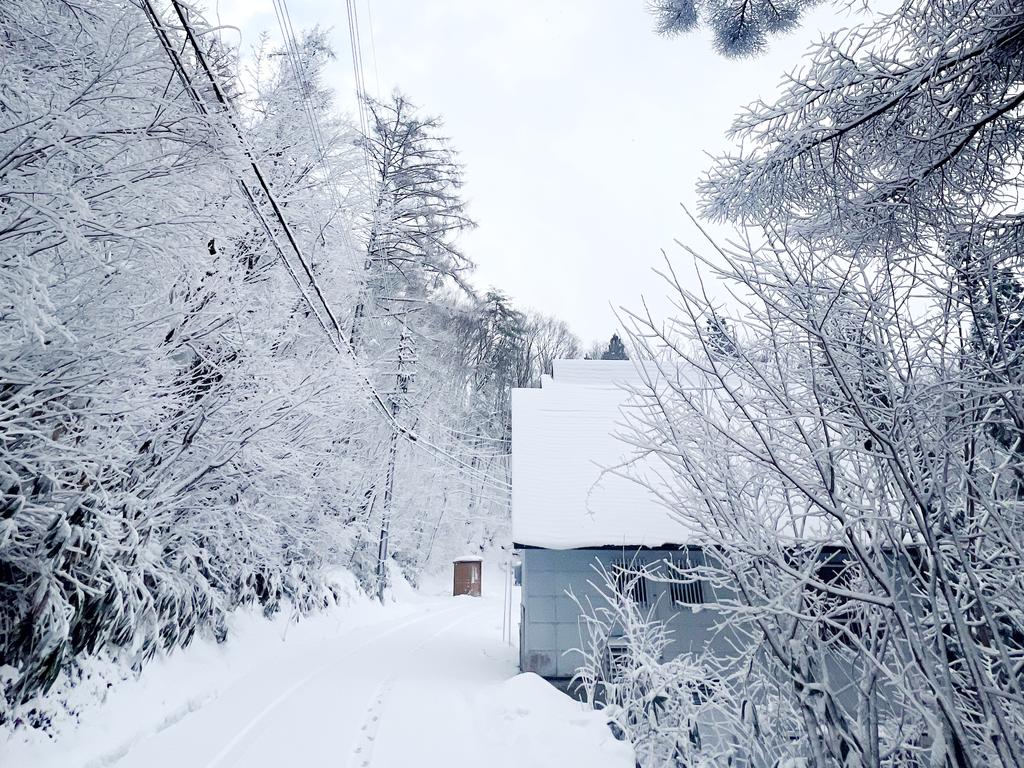
While Lia loves the balance of rural and city life, she acknowledges that for people who haven’t lived in Japan as long as them, connecting with the community can be challenging.
“I love the farmers markets, the locals, the beautiful nature. But I think sometimes, living here can be romanticised,” Lia said.
“Some people do have this idea they’re going to move here and live this Studio Ghibli life.
“But if you don’t speak the language or try to understand the idiosyncrasies of a Japanese community, it can be hard to assimilate.
“Many [residents of] the towns or village grew up together. In some ways you may always be an outsider.”
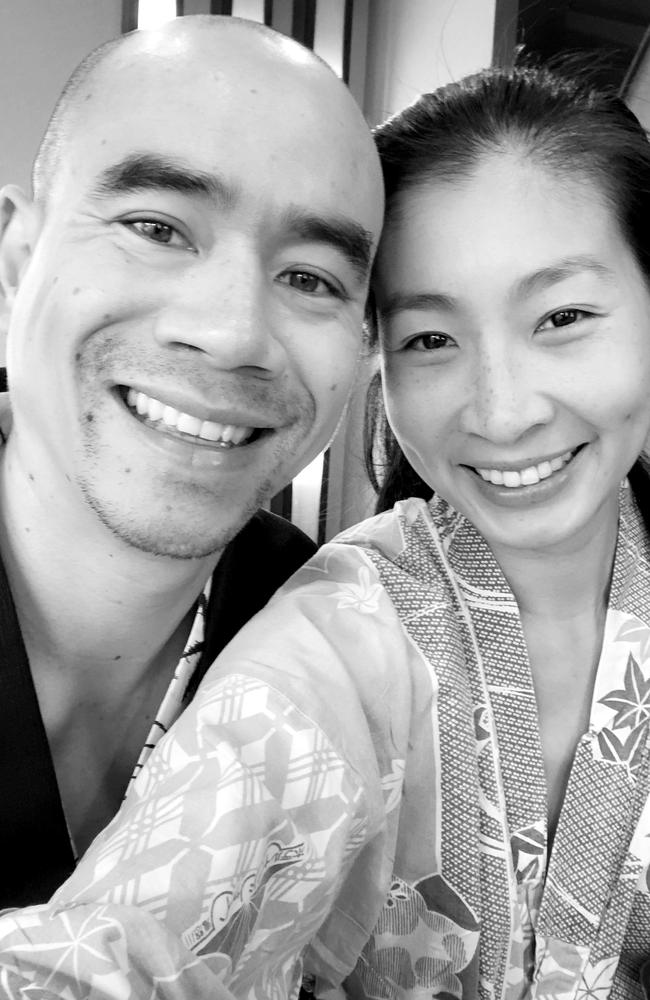
Lia and her husband purchased their Tokyo property through her friend Emil Gorgees, who is also originally from Melbourne.
He is the founder of RealEstate.jp, a Tokyo-based agency that focuses on helping foreigners find their dream homes.
But Mr Gorgees warned there can be more than meets the eye to the Japanese property market.

“You may hear about these beautiful homes that cost next to nothing compared to what you’d pay in Australia,” he said.
“But there’s a lot of work in those properties, you have to hire someone to manage them. Not to mention the renovations.”
He also said the recent tourism boom will drive prices up, “because there’s a lot more money coming into Japan”.
Despite this, he says the exposure will lure many more Aussies to Japanese soil.
“Now it’s on everyone’s radar,” he said.
Ultimately, there’s a reason for that.
“Buying a house in Japan is a good deal.”
Nelson Groom is a freelance writer. His novel The Auction is coming soon. Learn more on
Nelson’s Instagram. Got a travel tale to share? Email Nelson here.




